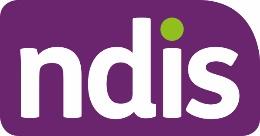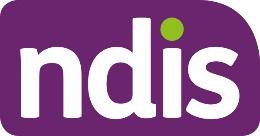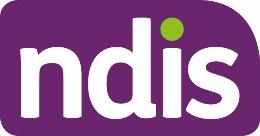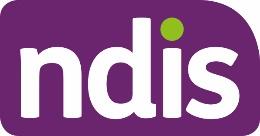
FOI 24/25-0380
DOCUMENT 6
[Research Paper]
OFFICIAL
For Internal Use Only
Cognitive Behaviour Therapy for Emotional
Regulation in Children with Autism
The content of this document is OFFICIAL.
Please note:
The research and literature reviews collated by our TAB Research Team are not to be shared
external to the Branch. These are for internal TAB use only and are intended to assist our
advisors with their reasonable and necessary decision-making.
Delegates have access to a wide variety of comprehensive guidance material. If Delegates
require further information on access or planning matters, they are to call the TAPS line for
advice.
The Research Team are unable to ensure that the information listed below provides an
accurate & up-to-date snapshot of these matters
Research question: Is available evidence to support the efficacy of CBT for children aged
6-8 with Autism for emotional regulation? If the provision of CBT is appropriate for this age
group, does it qualify as an intervention better provided by mainstream mental health?
Date: 17/10/2022
Requestor: S47F - Personal Privacy
Endorsed by: S47F -
Researcher: S47F - Personal
Cleared by: S47F - Personal
1. Contents
Cognitive Behaviour Therapy for Emotional Regulation in Children with Autism ....................... 1
1.
Contents ....................................................................................................................... 1
2.
Summary ...................................................................................................................... 2
3.
Cognitive Behaviour Therapy ........................................................................................ 2
4.
Cognitive Behaviour Therapy for Emotional Regulation in Children with Autism .......... 3
5.
NDIS and Health Mainstream Interface ........................................................................ 3
6.
References ................................................................................................................... 4
Page 1 of 4
OFFICIAL
Page 1 of 4

FOI 24/25-0380
[Research Paper]
OFFICIAL
For Internal Use Only
2. Summary
Cognitive behaviour therapy is considered a treatment approach to address a range of mental
and emotional health issues. There is some evidence in the literature to support the use of
cognitive behaviour therapy for children with autism, however implementation techniques may
need to be modified according to the child’s functional ability to participate in the therapy. As
cognitive behaviour therapy is considered a treatment approach for symptoms, it might be
better funded by mainstream mental health services.
3. Cognitive Behaviour Therapy
Cognitive behaviour therapy (CBT) is a
treatment approach for a range of mental and
emotional health issues (Better Health Channel, 2022), including:
• Anxiety
• Anxiety disorders (e.g., social phobia, obsessive compulsive disorder)
• Depression
• Low self-esteem
• Irrational fears
• Hypochondria
• Substance misuse
• Eating disorders
• Insomnia
• Certain emotional and behavioural problems in children or teenagers
CBT combines cognitive therapy (changing or challenging maladaptive thoughts) and
behaviour therapy (learning new skills or helpful behaviours) (Better Health Channel, 2022).
CBT is considered a short-term form of psychotherapy, however it can still take more time to
successfully overcome maladaptive patterns of thinking and behaving (Better Health Channel,
2022).
Although CBT treatment plans are individualised to patient need, a typical intervention would
include (Whitehouse et al., 2020):
(a) explaining the cause of anxiety,
(b) discussing the impact of anxiety on daily life,
(c) identifying situations that induce anxiety and ordering these,
(d) gradually exposing the person to the situations from least to most confronting while
managing anxiety as it arises, and
Page 2 of 4
OFFICIAL
Page 2 of 4

FOI 24/25-0380
[Research Paper]
OFFICIAL
For Internal Use Only
(e) teaching the individual additional coping strategies such as relaxation.
CBT can be implemented one-to-one with a therapist, in a group setting, or online (Hillman et
al., 2020). For successful treatment, CBT requires
active participation in treatment, and
involves a close working relationship between the individual and the therapist (Better Health
Channel, 2022). CBT can be implemented by counsellors, psychologists, mental health social
workers and therapists (Better Health Channel, 2022).
4. Cognitive Behaviour Therapy for Emotional Regulation
in Children with Autism
Evidence has related poor emotional regulation to emotional problems in children with autism,
such as anxiety, depression, and anger (Thomson et al., 2015). The use of CBT for children
with autism is based on research findings that anxiety disorders and depression are common
in autism, and CBT may lead to improvements in mood disturbances and better emotional
regulation, reduce unhelpful routines or behaviours of concern, and increase social behaviours
(Thomson et al., 2015; Whitehouse et al., 2020). One specific systematic review/meta-analysis
included 45 randomised controlled trials for children and adolescents with autism, although
study quality was low to moderate, found lower symptoms of socio-emotional problems after
CBT as reported by informants and clinician measures (Wang et al., 2021).
It is speculated that the structured nature of CBT makes it appropriate for individuals with
autism (Sharma et al., 2018), however it is also noted that some CBT techniques, such as
those that rely on verbal communication or provide insight into one’s own thoughts, may be
challenging for some individuals with autism and therefore would need to be modified (Hillman
et al., 2020). Additionally, specific modifications for younger children with autism would involve
reducing abstract language, simplifying tasks that require metacognition (thinking about
thinking), and incorporating strategies to engage the child to develop real-world skills (Keefer
and Vasa, 2021).
5. NDIS and Health Mainstream Interface
The NDIS is responsible for ongoing functional support for day-to-day living. The National
Disability Insurance Scheme (NDIS) does not fund clinical treatment from a mental health
profession to address symptoms (National Disability Insurance Agency, 2018). As CBT is
considered a treatment therapy to address mental health symptoms, it is likely to be more
appropriately funded by the health system (National Disability Insurance Agency, 2022):
“cognitive behavioural therapy is a form of clinical treatment and the health system, not
the NDIS, is the most appropriate agency to fund this support”
Further information can be found at Mental Health Access Snapshot 5 – NDIS and Other
Services.docx (2018) and Mental health supports | NDIS (2022).
Page 3 of 4
OFFICIAL
Page 3 of 4

FOI 24/25-0380
[Research type]
OFFICIAL
For Internal Use Only
6. References
Better Health Channel. (2022).
Cognitive behaviour therapy. State Government Victoria.
Accessed from
https://www.betterhealth.vic.gov.au/health/conditionsandtreatments/cognitive-
behaviour-therapy
Hillman, K., Dix, K., Ahmed, K., Lietz, P., Trevitt, J., O’Grady, E., Uljarevic, M., Vivanti, G., &
Hedley, D. (2020). Interventions for Anxiety in Mainstream School-Aged Children with
Autism Spectrum Disorder: A Systematic Review.
Campbell Systematic Reviews, 16(2).
Keefer, A., & Vasa, R. A. (2021). DINOSAUR: an integrated cognitive-behavioral treatment for
anxiety in young children with ASD.
Journal of neurodevelopmental disorders, 13(1), 46.
https://doi.org/10.1186/s11689-021-09396-9
National Disability Insurance Agency. (2018).
Mental health access snapshot series: snapshot
5 – NDIS and other services supporting your mental health. Accessed from
https://intranet.ndiastaff.ndia.gov.au/service-
delivery/ layouts/15/WopiFrame.aspx?sourcedoc=/service-
delivery/Documents/Mental%20Health%20Access%20Snapshot%205%20%E2%80%9
3%20NDIS%20and%20Other%20Services.docx&action=default&DefaultItemOpen=1
National Disability Insurance Agency. (2022).
Mental health supports. Accessed from
https://ourguidelines.ndis.gov.au/would-we-fund-it/improved-health-and-
wellbeing/mental-health-supports
Sharma, S. R., Gonda, X., & Tarazi, F. I. (2018). Autism Spectrum Disorder: Classification,
diagnosis and therapy.
Pharmacology & therapeutics, 190, 91–104.
https://doi.org/10.1016/j.pharmthera.2018.05.007
Thomson, K., Burnham Riosa, P., & Weiss, J. A. (2015). Brief Report of Preliminary Outcomes
of an Emotion Regulation Intervention for Children with Autism Spectrum
Disorder.
Journal of autism and developmental disorders, 45(11), 3487–3495.
https://doi.org/10.1007/s10803-015-2446-1
Wang, X., Zhao, J., Huang, S., Chen, S., Zhou, T., Li, Q., Luo, X., & Hao, Y. (2021). Cognitive
Behavioral Therapy for Autism Spectrum Disorders: A Systematic
Review.
Pediatrics, 147(5), e2020049880. https://doi.org/10.1542/peds.2020-049880
Whitehouse, A., Varcin, K., Waddington, H., Sulek, R., Bent, C., Ashburner, J., Eapen, V.,
Goodall, E., Hudry, K., Roberts, J., Silove, N., Trembath, D.
Interventions for children on
the autism spectrum: A synthesis of research evidence. Autism CRC, Brisbane, 2020.
V0.0 XX-XX-XXXX
Abbreviated Title
Page 4 of 4
OFFICIAL
Page 4 of 4



